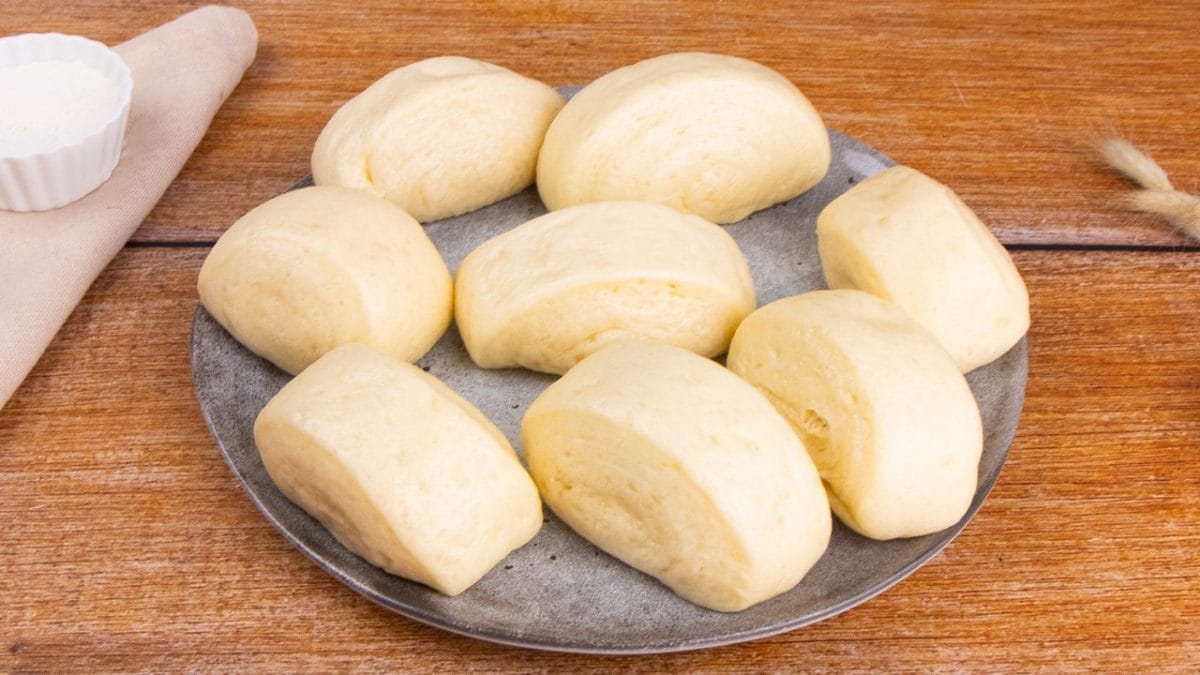
Soft, pillowy Mantou buns also known as Chinese steamed buns—are a staple in Chinese cuisine, loved for their light texture and subtle sweetness. Made with just flour, yeast, water, and sugar, they’re a minimalist’s dream. Whether enjoyed plain or dipped in sauces, these buns are perfect for breakfast, snacking, or as a side to savory dishes.
What Are Mantou Buns?
Mantou is a traditional Chinese steamed bun that dates back over two thousand years. Originating in Northern China, this yeast-leavened bread became a cultural staple due to its versatility and ease of preparation. Unlike baozi, which are filled, mantou are usually plain, though they can be served with everything from stir-fries to condensed milk for dipping. Their texture is airy and springy—a true comfort food that’s gaining popularity worldwide.
Why Everyone Will Love This Recipe
- Incredibly soft and fluffy—they practically melt in your mouth.
- Only 4 ingredients, all pantry staples.
- No oven required—just a steamer.
- A fun, hands-on activity for families or weekend bakers.
- Pairs beautifully with sweet spreads or savory sides.
Pro Tips for the Best Mantou Buns
- Use lukewarm water (about 100°F) to help the yeast activate effectively.
- Knead the dough well—aim for a silky, elastic texture.
- Let the dough fully double in size during both rises for a light, fluffy result.
- Place parchment paper under each bun to avoid sticking during steaming.
- Avoid opening the lid during steaming—it can cause the buns to collapse or wrinkle.
Frequently Asked Questions
Can I Make Mantou Without a Bamboo Steamer?
Yes! A metal steamer, a steaming basket, or even a heatproof plate inside a pot with a lid will work—just ensure it's covered well to trap steam.
Why Are My Mantou Not Fluffy?
Under-kneading, cold water, or cutting rise time short can all cause dense buns. Make sure the dough is well-kneaded and fully proofed.
Can I Flavor the Dough?
Absolutely. You can incorporate matcha, pumpkin purée, purple sweet potato, or cocoa powder into the dough for fun variations.
How Do I Serve Mantou?
Serve warm with sweetened condensed milk, jam, or use as a side with savory dishes like braised pork belly.
Are Mantou and Baozi the Same?
Not quite—mantou are typically plain, while baozi are filled buns. Both are steamed but differ in usage and filling.
How to Store
Once the buns have cooled completely, store them in an airtight container or zip-top bag in the refrigerator for up to 3 days. To reheat, steam for 5 minutes or microwave with a damp paper towel to restore softness.
How to Freeze
Place cooled mantou in a single layer on a tray and freeze until firm. Then, transfer to a freezer bag or container. They’ll keep for up to 2 months. Reheat from frozen by steaming for 10–12 minutes, or microwave with a damp paper towel until soft and warm.
Ingredients
How To Make Fluffy Buns
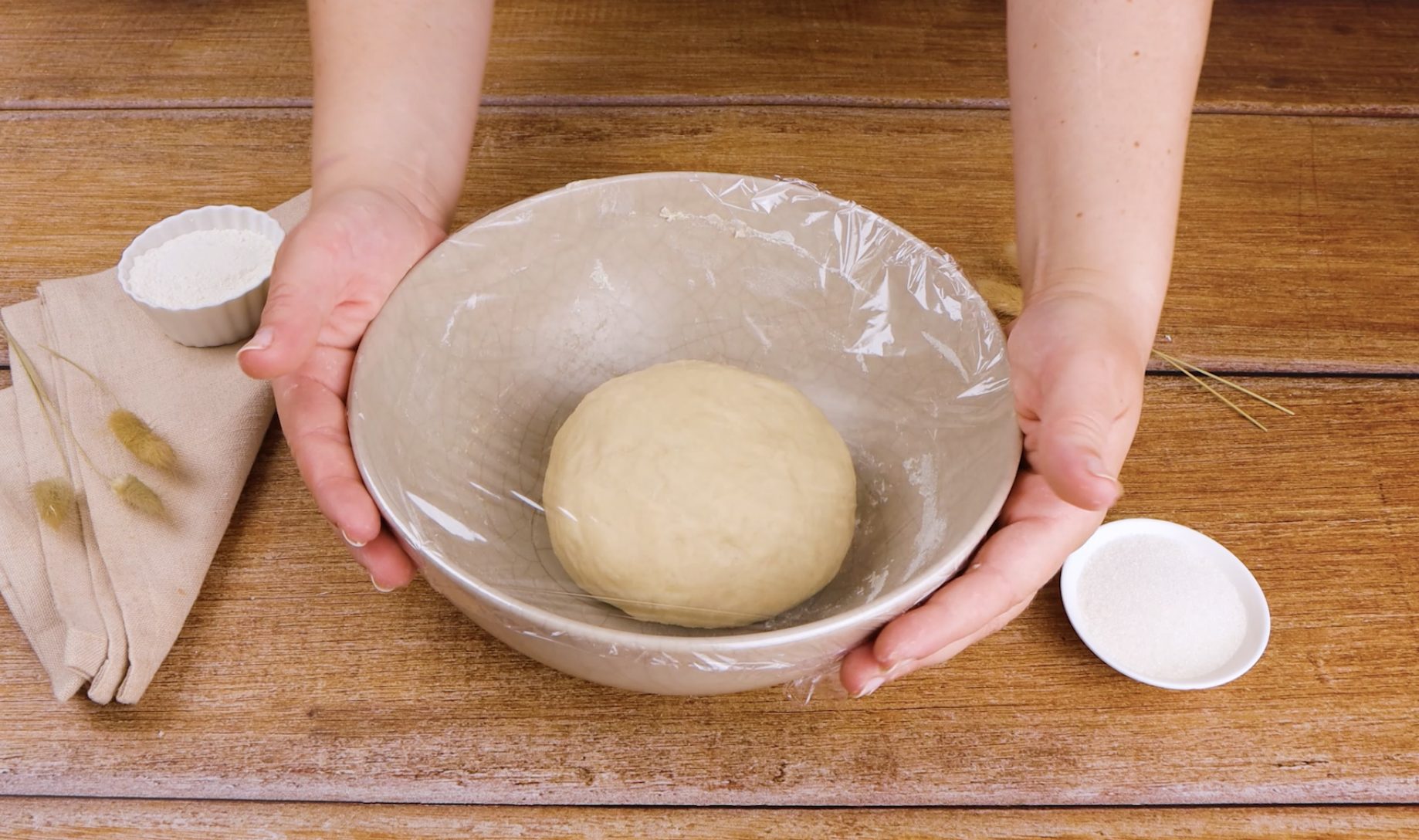;Resize,width=712;)
Making mantou is a simple but satisfying process, with just a handful of ingredients and a bit of patience. It all starts by activating your yeast. Pour the warm water think bath temperature, not hot—into a large bowl and sprinkle in the dry yeast. Give it a quick stir and let it sit for a few minutes. You’ll soon see it start to bubble slightly, which is your sign that the yeast is alive and ready to do its magic.
Making mantou is a simple but satisfying process, with just a handful of ingredients and a bit of patience. It all starts by activating your yeast. Pour the warm water think bath temperature, not hot—into a large bowl and sprinkle in the dry yeast. Give it a quick stir and let it sit for a few minutes. You’ll soon see it start to bubble slightly, which is your sign that the yeast is alive and ready to do its magic.
Once the yeast is dissolved and foamy, it’s time to bring the dough together. Add the flour and sugar to the bowl, and stir with a spatula or wooden spoon until the ingredients begin to clump. Don’t worry if it looks messy at first—it’s supposed to. When it gets too thick to stir, roll up your sleeves and start kneading by hand. You’re aiming for a smooth, elastic dough that’s slightly tacky but not sticky. If it's too dry, a splash of water will help; if it's too wet, dust in a little more flour.
After about 8–10 minutes of kneading, shape the dough into a ball and place it back into the bowl. Cover it tightly with cling film and set it somewhere warm and draft-free an oven with the light on works perfectly. Let it rise for around an hour, or until it’s doubled in size. Don’t rush this part; a good proof is key to fluffy buns.
When your dough has risen beautifully, turn it out onto a clean surface and give it a gentle knead to deflate it slightly. Divide the dough into three equal parts, and roll each one into a smooth, even log.
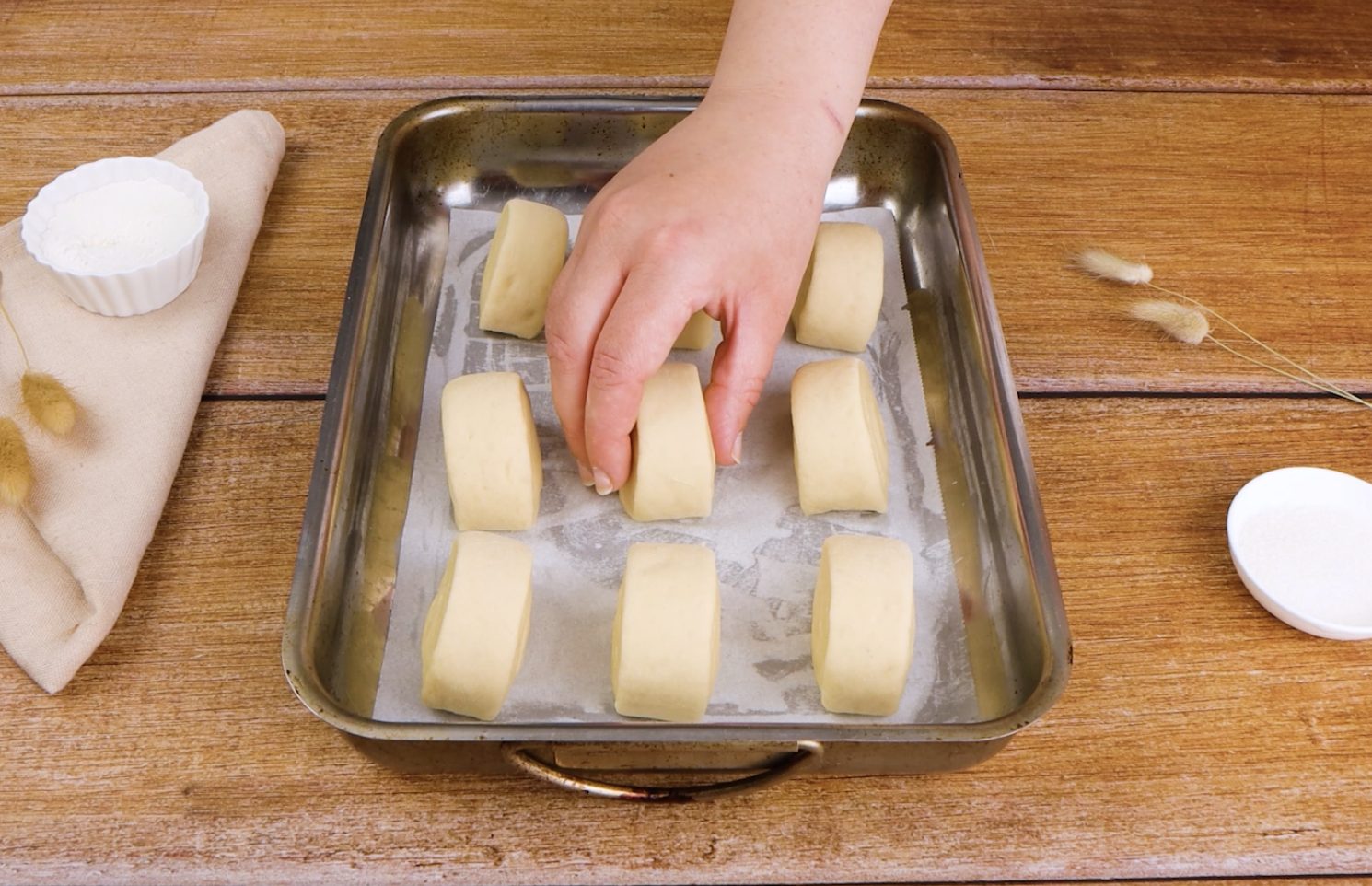;Resize,width=712;)
Once the yeast is dissolved and foamy, it’s time to bring the dough together. Add the flour and sugar to the bowl, and stir with a spatula or wooden spoon until the ingredients begin to clump. Don’t worry if it looks messy at first—it’s supposed to. When it gets too thick to stir, roll up your sleeves and start kneading by hand. You’re aiming for a smooth, elastic dough that’s slightly tacky but not sticky. If it's too dry, a splash of water will help; if it's too wet, dust in a little more flour.
Use a sharp knife to trim off the ends so they're nice and neat, then cut each log into smaller pieces—about 40 grams each is a good size for traditional mantou.
Line a tray with parchment paper and space the dough pieces out, giving them room to puff up. Cover them again and let them rise for another 40 minutes. This second rise gives the buns their signature airy texture, so again, patience is key.
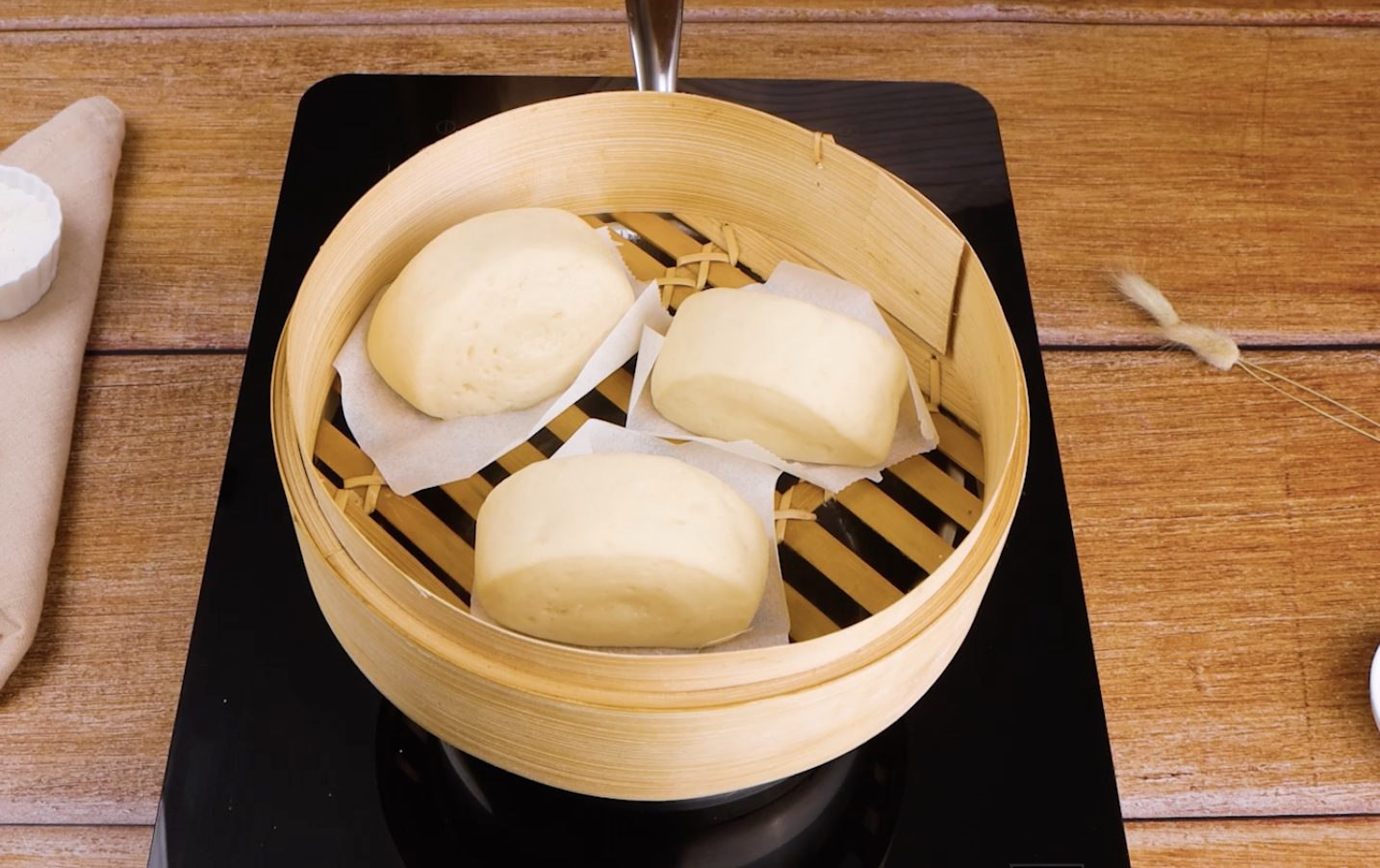;Resize,width=712;)
After about 8–10 minutes of kneading, shape the dough into a ball and place it back into the bowl. Cover it tightly with cling film and set it somewhere warm and draft-free an oven with the light on works perfectly. Let it rise for around an hour, or until it’s doubled in size. Don’t rush this part; a good proof is key to fluffy buns.
Once they’re nicely puffed, it’s time to steam. Place the buns in a bamboo steamer (or any steamer you have), making sure they’re not touching—mantou expand as they cook. Set the steamer over boiling water, pop on the lid, and steam for 9 minutes. Try not to peek—keeping the lid closed ensures even cooking and helps maintain their shape. When the timer’s up, remove the steamer from the heat but let it sit, covered, for 1–2 more minutes before opening. This little trick prevents sudden temperature changes, which can make the buns wrinkle.
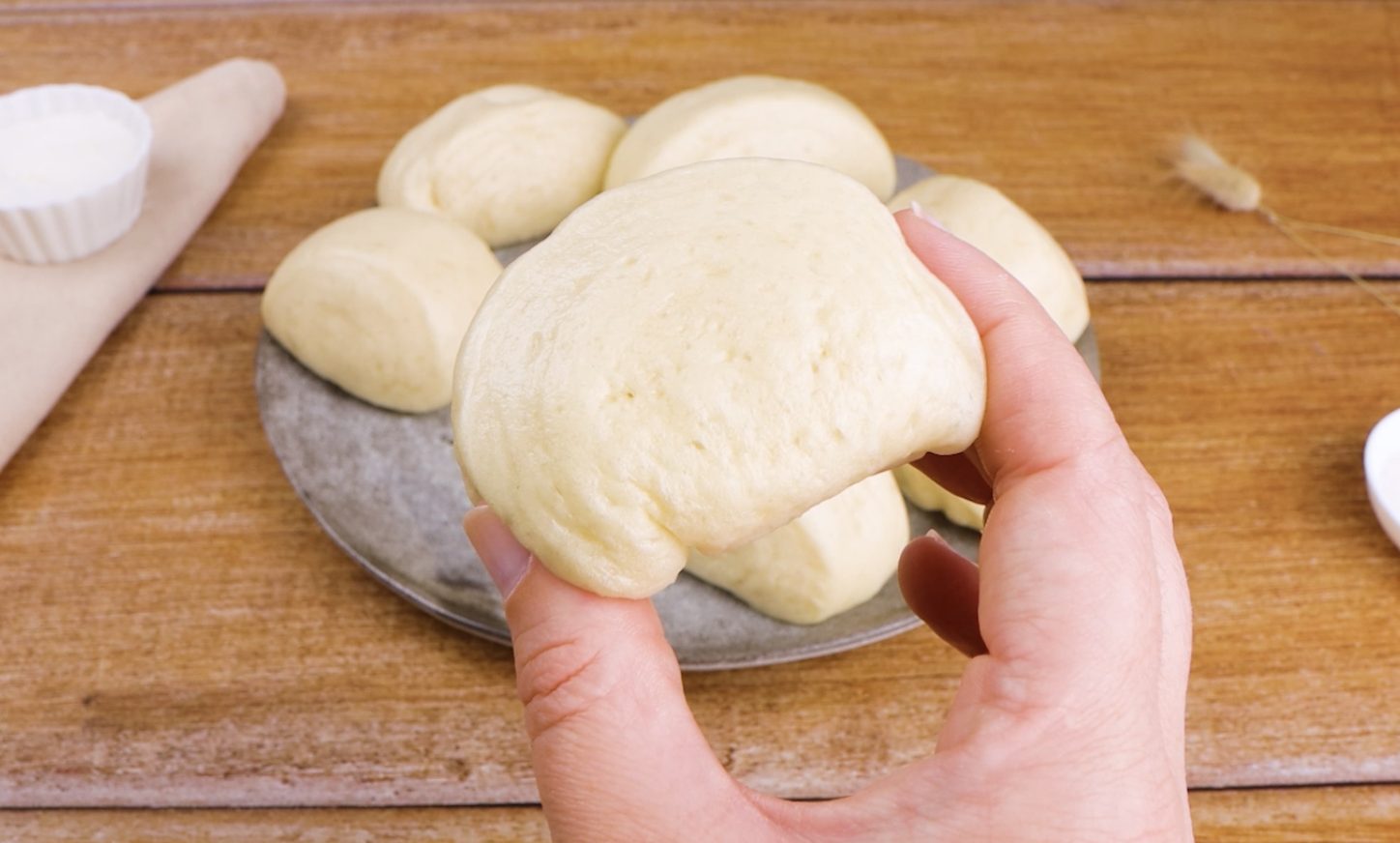;Resize,width=712;)
When your dough has risen beautifully, turn it out onto a clean surface and give it a gentle knead to deflate it slightly. Divide the dough into three equal parts, and roll each one into a smooth, even log.
Finally, lift the lid, let the steam escape, and gently transfer your mantou to a serving plate. They’re best enjoyed warm—soft, fluffy, and just a touch sweet.

;Resize,width=767;)
